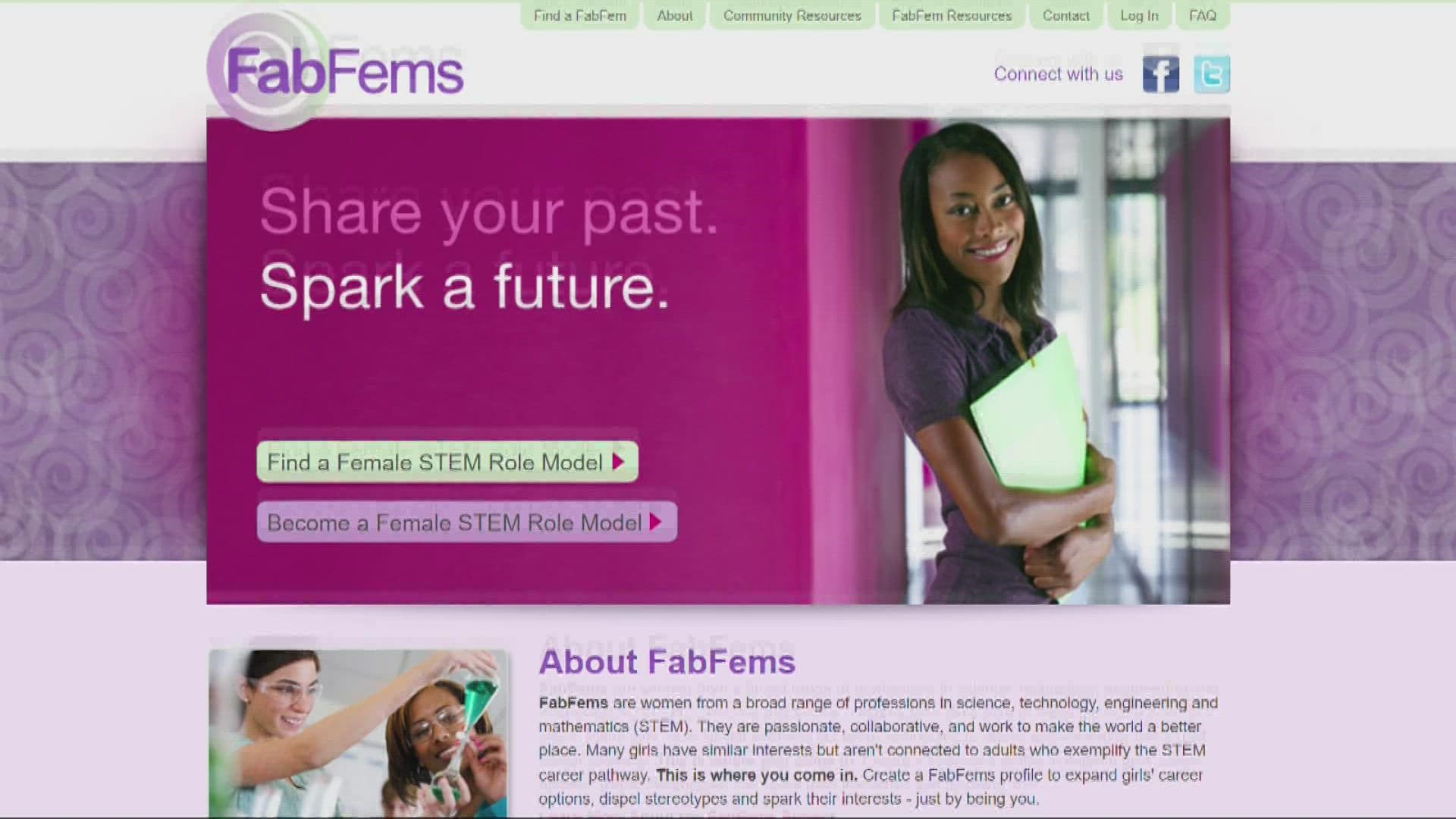MONMOUTH, Maine — Highmoor Farm in Monmouth is still covered by a thin sheet of snow, but there are hopeful signs spring is on the way. The bare apple orchards are muddy, and growth in the greenhouse is already underway. Soon, the 178 acres here will be ripe with green grasses and fruits and vegetables.
Tori Jackson is a professor of agriculture and natural resources at Highmoor Farm, as part of the University of Maine Cooperative Extension. She also works as a half-time administrator, covering commercial and consumer agriculture for the state of Maine. Jackson's roots at Highmoor Farm actually go back to her days as a teenager, when she used to pick strawberries as a part-time job.
"I grew up in a family that did a lot of gardening, and so I was always outside playing in the dirt, working with my hands," Jackson said.
Jackson didn't originally think she would end up in a STEM profession, though. She first went to college for music at the University of Southern Maine but ended up transferring halfway through, realizing she wanted a more stable career. She studied plant science at College of the Atlantic and graduated with her master's degree from the University of Maine at Orono in 2004.
"One of the great things about my job is that every day is different in a pretty dramatic way," Jackson explained.
She also said she has found a way to make time for her hobbies in her personal life.
"I have a band that I play with with nine other musicians," Jackson said. "I have a photography business, so I'm outside all the time."
For Ann Cleveland, a professor of marine biology at Maine Maritime Academy, the pathway to a career in STEM was a bit more obvious.
"I loved science. I didn't know that's what it was, but I loved asking questions and poking around at things," Cleveland said.
She said her primary interest has always been fish, going back to days in her childhood when she would visit salmon hatches with her father while traveling to Maine.
Cleveland said her father was an engineer, and her mother was a schoolteacher.
They were both encouraging when it came to her dreams, but she was often was the only girl in advanced math classes. She said those scales "have totally tipped" in some capacity. For example, she said in life sciences, there are likely more women than men now.
"[Women] bring a different perspective [and] potentially different things that they're interested in," Cleveland said, explaining why it's important to have a well-rounded workforce. She said the more people working on problems, the better the answers will be.
Laura Wilson is a 4-H Science Professional with the University of Maine Cooperative Extension. She started out her education in civil engineering, where she experienced a big gender gap. She eventually ended up pursuing studies about water resources and has been in her current position for about 10 years, helping kids find their spark by connecting them with scientists and engineers at the University of Maine.
"A lot of children in the state don't necessarily know how to articulate their needs, and if they do, a lot of parents don't know the next steps," Wilson said, later adding, "For me, it's exciting to see that eye-opening like, 'Oh, I can do this, too,' moment."
All three of these Maine women are part of the online directory called FabFems.
FabFems is an international database with women around the world who are in science, technology, engineering, or mathematics professions. The point of this directory is to allow students, parents, and even school counselors to connect with role models who can give guidance about next steps for those interested in pursuing STEM careers.
"If this is what you want to do, you can do it," Cleveland said.
"I'm no longer the only woman in the room almost ever, which is great," said Jackson about progress.
RELATED: Family praises experimental autism treatment, now teen with autism graduates from high school
If you're interested in connecting with one of these three women, you can click here to visit the FabFems website. From there, enter your zip-code, and the directory will find the closest match to you. Then, you can send them a message to connect.
Per the University of Maine Cooperative Extension: Photographs of people not wearing masks were taken prior to the coronavirus pandemic.

